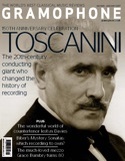Texte paru dans: / Appeared in: |
|
|
Outil de traduction (Très approximatif) |
|
|
Reviewer: Neil Fisher
There have been at least 60 adaptations of Metastasio’s libretto. Caldara wrote the first, and JC Bach’s version has had some afterlife. Neither composer had the luxury of the castrato Caffarelli, however, and, just as Pergolesi’s writing for Caffarelli’s role, Farnaspe, takes the opera to a different level of inspiration, so Decca’s recording is motored around Franco Fagioli’s performance in the part. The result is perhaps inevitably lopsided. In an opera written for five sopranos and one tenor, Fagioli’s penetrating, syrupy falsetto and quivering vibrato is the voice that makes you sit up. It’s highly likely that’s how Caffarelli’s virtuosity would have struck the Naples audience, too. Yet where a composer such as Handel would incorporate a star castrato’s vocal colours into a more developed palette, Pergolesi approaches writing for Cafarelli like a kid in a candy shop – or perhaps the apparently petulant castrato was the one dictating terms. And certainly his two showcase arias, which conclude Acts 1 and 2, are delirious, high-wire acts. In the first, Fagioli tracks an oboe with honeyed trills and leaps up and down his extensive range; in the second, ‘Torbido in volto e nero’, a horn blows the gale of a gathering storm and Fagioli unleashes a rollercoaster of fioriture. So much for the money shots. The rest is more humdrum. Pergolesi’s pacing of the drama is uneven, with successions of slow arias holding up the momentum and acres of recitative standing in for expressive drama – particularly during the suddenly plot-intensive Act 2, when the Parthians whom Adriano (Hadrian) has subjugated briefly attempt to rebel. If there is tension in Metastasio’s premise, it’s between love and duty, a Baroque staple but one that can be given greater piquancy than it is here. The rest of the performers are accomplished but struggle to add definition to underwritten characters. Singing with loftier grace than Fagioli, countertenor Yuriy Mynenko is a flighty, sensitive Adriano. Romina Basso’s graver, darker mezzo makes the most of Emirena’s grief and indecision – she’s caught between Farnaspe’s love and the Emperor’s passion, but there’s not much, musically speaking, that separates her from Dilyara Idrisova’s slightly chilly Sabina, Adriano’s intended. Juan Sancho blusters effectively as the quelled Parthian king, Osroa, and there’s vigorous but not especially characterful support from the Polish ensemble Capella Cracoviensis, conducted by Jan Tomasz Adamus. |
|




